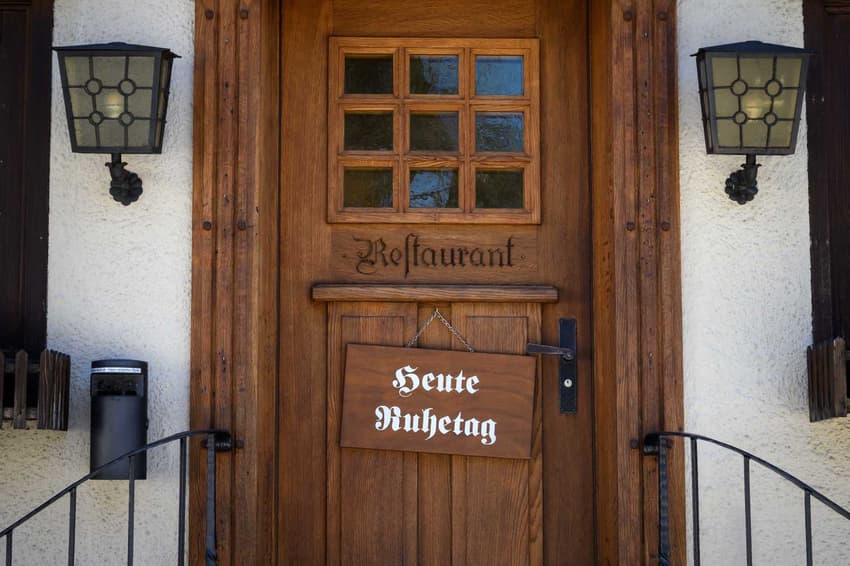Rising infection rates put Switzerland’s March reopening plans in jeopardy

Switzerland has seen a resurgence in coronavirus infections, putting the planned March 22nd reopening of restaurants at risk.
What is happening?
The number of new coronavirus infections in Switzerland is at its highest in a month.
In the 24 hours to March 10th, Switzerland reported 1,491 new coronavirus infections.
The actual number of confirmed infections is expected to be higher, with several districts not yet updating their figures.
This is the highest number since February 8th (1,752).
#CoronaInfoCH #Coronavirus #COVID19
10.03. Aktueller Stand sind 567 903 laborbestätigte Fälle, 1491 mehr als am Vortag. Gemeldete Tests: 32 557 in den letzten 24 Stunden.
Reproduktionszahl Re vom 26.02.2021: 1,09 https://t.co/vMBPcGwAPO pic.twitter.com/IJgaAUyHM9
— BAG – OFSP – UFSP (@BAG_OFSP_UFSP) March 10, 2021
Why are infection rates on the rise?
One possible reason for the rising number of cases is the loosening of measures on March 1st.
From March 1st, non-essential shops, museums and library reading rooms were again allowed to open, along with outdoor sports and leisure facilities, zoos and botanical gardens.
When making the announcement, the government said the country can gradually take the first steps out of Covid-19 restrictions and into the "gradual normalisation of social and economic life".
Since the relaxation however, Switzerland’s seven-day average has increased by eight percent.
Switzerland’s Watson newspaper reports that the increase is likely due to the relaxation of the measures.
Another reason is likely to be the prevalence of the British mutation of the virus.
The mutation, which is known to be more infectious, can spread quicker and easier than previously known variants.
As at Wednesday, March 10th, 70 percent of new coronavirus cases were the British mutation.
What does this mean for the planned reopening of restaurants on March 22nd?
Switzerland is planning to allow restaurants with outdoor areas to reopen from March 22nd, provided infection rates stay low.
READ MORE: Switzerland decides shops, restaurants and museums can open in March
While the final decision on whether to open or not will be made on March 19th, if infection rates continue to rise, another extension of the measures appears likely.
On Tuesday, Switzerland’s coronavirus Taskforce boss Martin Ackermann indicated to Switzerland’s SRF news outlet that a more cautious approach may be preferred.
“In this uncertain situation, we advise from a scientific point of view to take cautious, small steps and always base further decisions on an analysis of the situation."
Comments
See Also
What is happening?
The number of new coronavirus infections in Switzerland is at its highest in a month.
In the 24 hours to March 10th, Switzerland reported 1,491 new coronavirus infections.
The actual number of confirmed infections is expected to be higher, with several districts not yet updating their figures.
This is the highest number since February 8th (1,752).
#CoronaInfoCH #Coronavirus #COVID19
— BAG – OFSP – UFSP (@BAG_OFSP_UFSP) March 10, 2021
10.03. Aktueller Stand sind 567 903 laborbestätigte Fälle, 1491 mehr als am Vortag. Gemeldete Tests: 32 557 in den letzten 24 Stunden.
Reproduktionszahl Re vom 26.02.2021: 1,09 https://t.co/vMBPcGwAPO pic.twitter.com/IJgaAUyHM9
Why are infection rates on the rise?
One possible reason for the rising number of cases is the loosening of measures on March 1st.
From March 1st, non-essential shops, museums and library reading rooms were again allowed to open, along with outdoor sports and leisure facilities, zoos and botanical gardens.
When making the announcement, the government said the country can gradually take the first steps out of Covid-19 restrictions and into the "gradual normalisation of social and economic life".
Since the relaxation however, Switzerland’s seven-day average has increased by eight percent.
Switzerland’s Watson newspaper reports that the increase is likely due to the relaxation of the measures.
Another reason is likely to be the prevalence of the British mutation of the virus.
The mutation, which is known to be more infectious, can spread quicker and easier than previously known variants.
As at Wednesday, March 10th, 70 percent of new coronavirus cases were the British mutation.
What does this mean for the planned reopening of restaurants on March 22nd?
Switzerland is planning to allow restaurants with outdoor areas to reopen from March 22nd, provided infection rates stay low.
READ MORE: Switzerland decides shops, restaurants and museums can open in March
While the final decision on whether to open or not will be made on March 19th, if infection rates continue to rise, another extension of the measures appears likely.
On Tuesday, Switzerland’s coronavirus Taskforce boss Martin Ackermann indicated to Switzerland’s SRF news outlet that a more cautious approach may be preferred.
“In this uncertain situation, we advise from a scientific point of view to take cautious, small steps and always base further decisions on an analysis of the situation."
Join the conversation in our comments section below. Share your own views and experience and if you have a question or suggestion for our journalists then email us at [email protected].
Please keep comments civil, constructive and on topic – and make sure to read our terms of use before getting involved.
Please log in here to leave a comment.